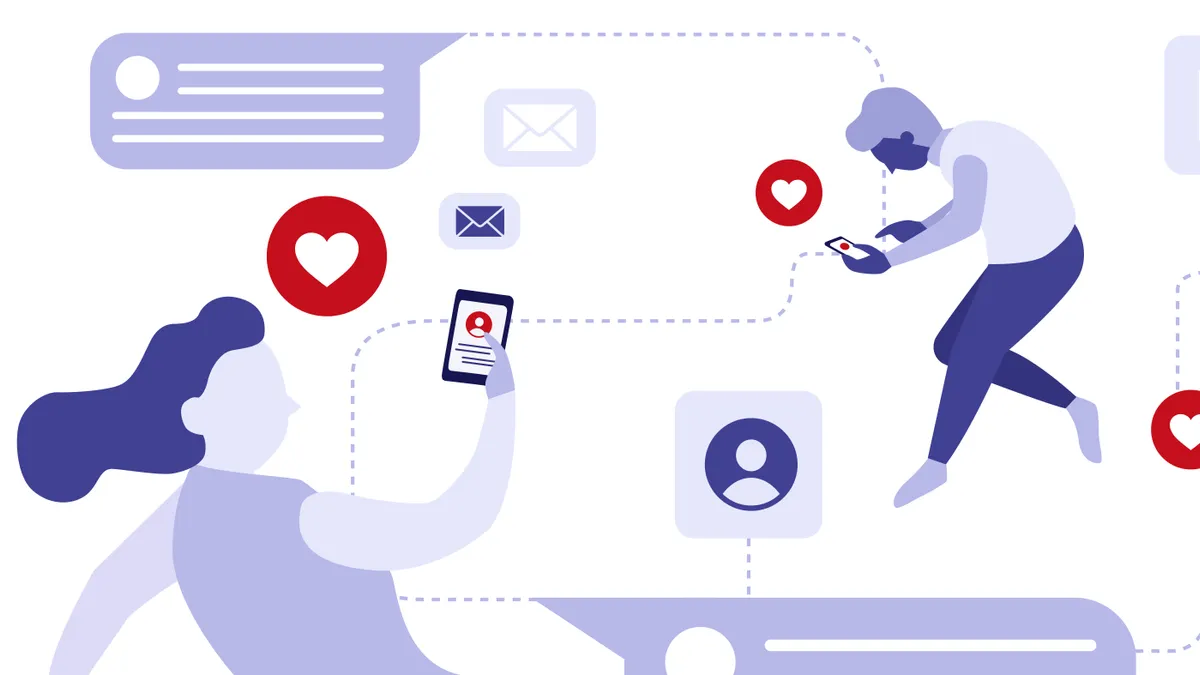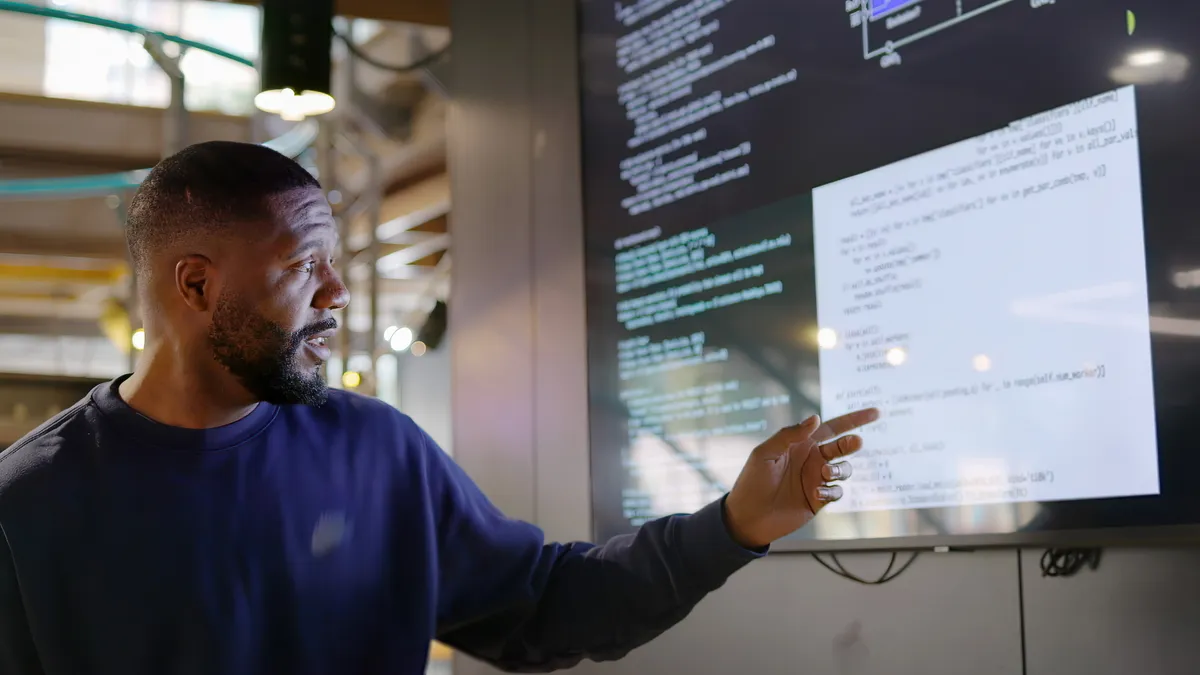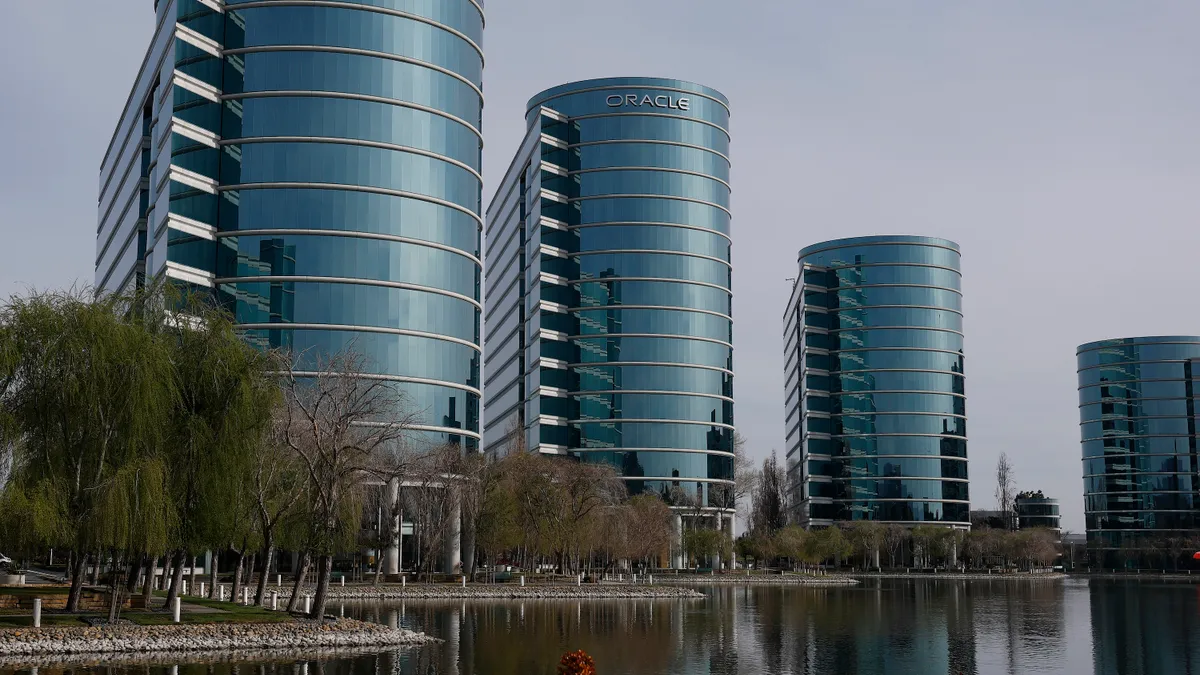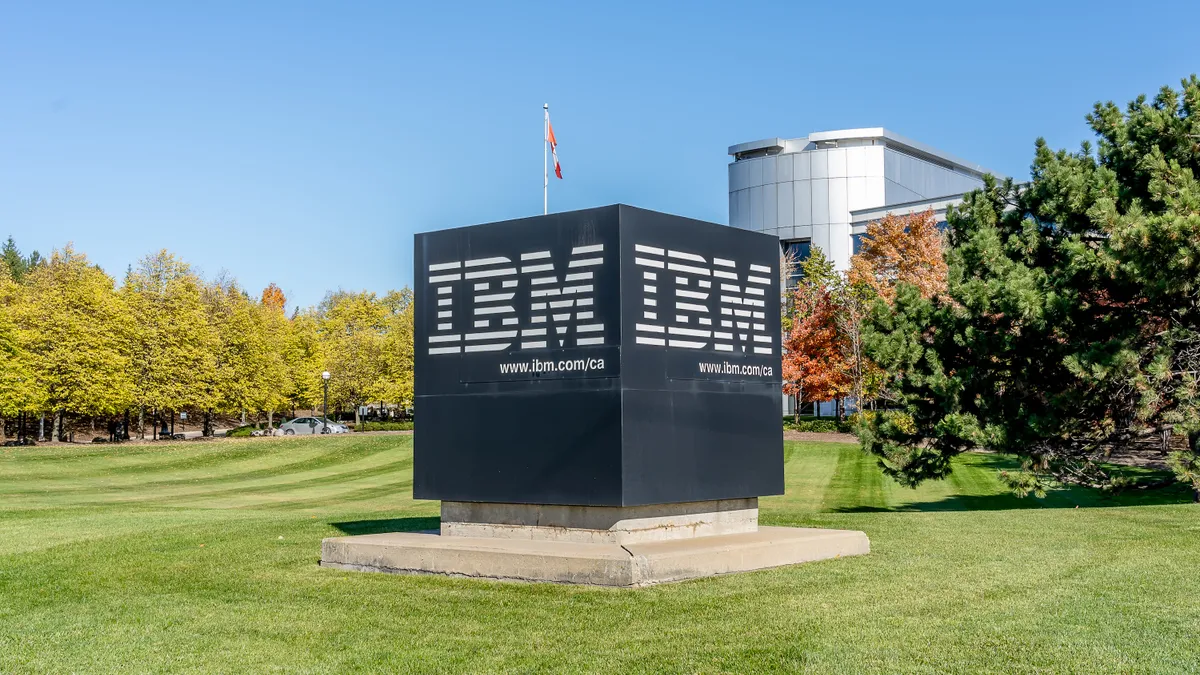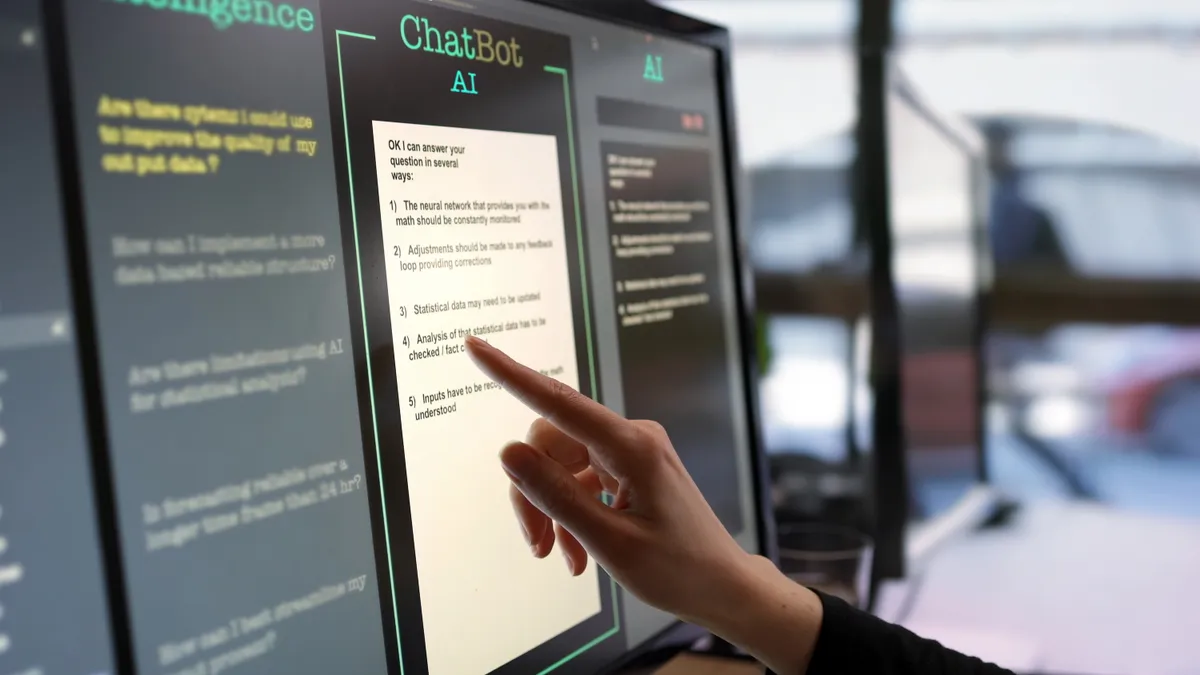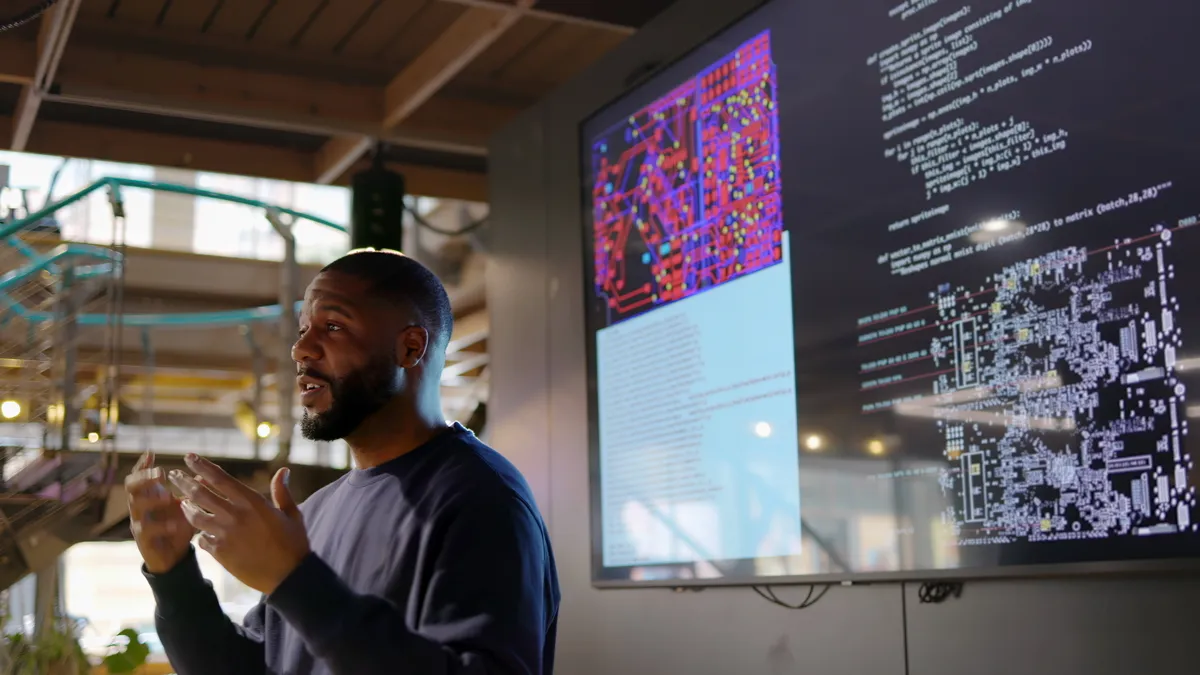The modern American love story starts where most of us begin our day: A mobile phone.
The idea of "swiping right" has become so ubiquitous it no longer needs an explanation. The number of couples who met without internet facilitation are dwindling.
Mobile technology's nearly complete permeation of American society has put every service imaginable at the fingertips of consumers, especially courtship. From the lifelong partner to late night company seekers — and every niche interest in between — the dating services industry has something for (just about) everyone.
Coffee Meets Bagel is one mobile dating application betting on meaningful connections and relationships in a world where customers can have anything they want. The company made waves in 2015 when its sister co-founders turned down a record $30 million offer from Mark Cuban on "Shark Tank," and it has since become one of the most popular dating apps in the country.
The company recently hit its 50 millionth connection and is ramping up investments in technology and scaling to meet its fast growth, CTO Will Wagner said in an interview with CIO Dive.
Coffee Meets Bagel and its peers can be viewed as a response to what early mobile dating platforms brought.
Many customers are tired of gamified dating apps — the "endless procession of potential dates and hookups, not a platform geared toward meaningful relationships," according to an IBISWorld report on the dating services industry in 2018. "Slow dating apps," such as Hinge, and apps that give women more control, such as Bumble, have found opportunity.
But to deliver the best matches and experience, these companies need the best technology.
It's all just data in the end
Wagner, a SurveyMonkey and YouCaring veteran, never thought he would work in the dating app space.
But Coffee Meets Bagel's mission of helping people find meaningful relationships spoke to him: He met his wife online at Match.com, and the pair share two children.
The company's founders, Arum, Dawoon and Soo Kang, "are forces of nature" who have gone all-in on the company. Meaningful leadership was important for Wagner coming from SurveyMonkey, where CEO Dave Goldberg left a lasting impression on employees following his death in 2015.
But from a technology perspective, the dating services industry provides a really cool data opportunity for technologists, Wagner said. Users are (ideally) with the application for a limited amount of time, and their success depends on a finely-tuned product delivering to their needs.
Measuring that success is complicated. The amount of time a user spends on the app or the number of likes they get are not good indicators for successful dating; the company focuses on deep and meaningful connections, especially ones that move into real life.
The measurement for that is constantly evolving: Right now, the company looks at users who connect and chat on the platform, as well as if they pass along personal information, Wagner said. Coffee Meets Bagel is trying to reduce friction so that when users meet for the first time, they feel like they already know each other.
Coming from a background outside of dating services, Wagner was surprised at how complicated some of the data concerns are — "because people are more complicated than you think," and it's about more than just matching the right person.
Finding the perfect bagel
There are two common schemes for dating applications: Users receiving curated matches based on who a company thinks will be compatible or users freely scrolling through potential matches in their vicinity.
Coffee Meets Bagel offers a discovery section, where female users can make the first move, and curated matches.
The company's matching algorithm runs on a deep neural network and uses a "blended" method, according to Wagner. Nine models rate the matches, and the system goes through all and comes back with a converged score.
Men receive up to 21 matches — or "bagels" — a day to decide on. Of the men who express interest, women will receive up to six curated matches that the algorithm finds with the most potential. The company extends the same logic to LGBT users.
The company opted for different numbers of matches for both sexes because of differences in dating behavior. Men tend to prefer selection, with the average male wanting 17 Bagels a day, while the average woman wanted four "high quality" bagels, according to the company.
The "#LadiesChoice" discovery method helped more than half of female users feel more control over their experience speaking with potential matches, according to the company. Ideally, the practice helps get rid of "endless swiping and ghosting" that can be exhausting for users looking for meaningful connection.
Artificial intelligence and machine learning are key to delivering the personalized experience customers expect today, said Sunil Rajasekar, CTO of MINDBODY, Inc., a consumer technology platform for fitness. But it's not just having the data and processing it that is a challenge: Organizations also need the application engineers who can weave the insights a company gleans back into the product.
Coffee Meets Bagels' product is a mobile-first and mobile-only platform that runs primarily on Amazon Web Services. The company also uses Google Cloud Platform, but it's mostly an AWS shop, Wagner said.
With an IT department in the midst of expansion, CMB is hiring in four key technology areas: DevOps specialists with AWS expertise, backend engineers conversant in Python, Android and iOS engineers, and data engineers. Last year, Coffee Meets Bagel and the engineering team doubled; product and engineering employees make up more than half of the company.
Wagner is a believer in focusing on what you're good at and buying whatever else you need. Why build up an operations team when, with the click of a mouse, a new server can easily be spun up on AWS?
By outsourcing functions such as phone number verification and business intelligence, the company's tech team can focus on bigger priorities, such as advancing its matching algorithm.
How much do you really care about your partner's height?
When users sign up to dating apps, they can manually input personal information or sometimes connect their dating profile to existing social media accounts, such as Facebook or Instagram.
The first signup is very important, because the information a user enters provides the first metrics for filtering who shows up on a user's app until more implicit data is taken, Wagner said.
Personalization can happen at many levels, and it's important to use the implicit and explicit information about customers, Rajasekar said in an interview with CIO Dive. Many businesses still try to deduce preferences based on behavior without taking the obvious step of just asking customers.
Companies should be wary of giving users five pages of information to fill out when they join, he said. Getting regular feedback and asking users how they like something allows the platform to build profiles over time without exhausting users upfront or limiting them to the responses given at one moment.
But the information users offer about themselves can create an interesting dilemma: If a woman likes tall partners and arbitrarily enters her desired height range as 6 feet or taller, she could miss out on the 5-foot-11-inch love of her life.
A dating platform is going to use the parameters users put forward, but what if users don't realize what they are limiting their experience with? Could expanding their minimum height preference open up dozens of potential new matches?
Coffee Meets Bagel has to figure out what parameters are arbitrary and which ones are set fast. Religion, age, location, alcohol or drug consumption, education and more can all come into play.
The company is trying to figure out how it can give users feedback so they can update preferences along the way, Wagner said.
Uber recently revamped its privacy principles and is trying to make its notices more transparent and accessible to users. The company is playing with features such as a prompt for users indicating that, if they enabled location data for a service, they could improve a feature like rider pickup.
A similar method for dating apps could prompt users to revisit and reconsider their preferences.
But dating apps still need to be careful that they are using data responsibly and not venturing into gray areas where customers could find their practices creepy.
What qualifies as creepy sits in the eye of the beholder, especially looking across generations, Rajasekar said. Younger technology users tend to be more open with what they put online, whereas older users are less so.
Companies need to have a clear understanding of the customer and what their value proposition is — and ask customers along the way, he said. There is no simple formula, but businesses need to be clear and explicit in how they are using data, especially in the GDPR era.
It's hard creating a value proposition that extends across lines such as generation, but by allowing customers to opt in and out with what they are comfortable, a company can create a product that works for everyone, he said.
No system is infallible
Earlier this week, Coffee Meets Bagel was made aware of unauthorized access to a "partial list of user details, specifically names and email addresses prior to May 2018."
The company has launched an investigation and brought on forensic experts and is in the process of notifying affected users, according to a statement Thursday.
Coffee Meets Bagel is GDPR compliant worldwide, even though its European user base is smaller, and is committed to maintaining users' privacy, Wagner said.
The company only uses personal information to improve the product and tailor the dating experience, Wagner said. It might use aggregated data to inform advertising, such as running ads in a certain location because many new users just joined in the area, but "we do not use or share personal information for targeted advertising in any form."


